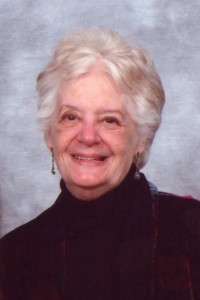Guest post by Tilya Gallay Helfield
 “I kept thinking of the movie The King’s Speech and worried I might develop a stutter. . . .”
“I kept thinking of the movie The King’s Speech and worried I might develop a stutter. . . .”
I was thrilled when I received the first e-mail from Karen Levine, producer of CBC Radio One’s The Sunday Edition, on November 21st, telling me that there was a lot she liked about the short memoir I had sent her five days earlier.
It wasn’t quite ready to be broadcast yet, though. Acceptance was contingent on my making certain revisions. She wanted the piece to be more than a straight story, a mere recounting of memory. She needed to know why the experience mattered to me and how it had changed my understanding of the world. Was there a lesson here for me? A new perspective?
She indicated two paragraphs in particular that she felt needed work and told me that if I was willing to incorporate her suggestions, she’d be happy to take another look. Of course I agreed.
I had written the first draft of “Sweet Adeline,” for Allyson Latta’s writing course at Koffler Centre of the Arts last year. The story about my beloved Aunt Adeline was originally about 500 words. I made some revisions based on reactions from Allyson and others in the class and later expanded it to over 1,000 words, then cut and rewrote it two or three times more. It was this third (or perhaps fourth) version that I had submitted to The Sunday Edition.
Three days after our initial e-mail exchange, I sent Karen a revised version of the story. Soon after that, she sent me a second edit. I was moving in the right direction, she said, but she questioned one premise in the story and pointed out that there was too much dialogue, which would make it a difficult piece to read on the radio. She suggested I call her to discuss it, which I did that afternoon.
We had a very productive chat, discovering along the way that we were both born and reared in Ottawa (although in different eras) and knew some of the same people. Karen was professional and confident but also encouraging. She knew radio, and what she wanted out of the story, and it was clear she would work with me in order to get it. I’ve never shied away from rewriting, and I was sure that I could make the changes she needed in order to accept my story. Following our conversation I completed and sent her a third version.
In mid-December, I received yet another edit. Karen knew exactly what she wanted me to convey in this story, and she was very constructive in helping me to achieve it, insisting that I write about what this experience meant to me. She felt that although the story was ostensibly about my Aunt Adeline, it was actually about me and my feelings about my aunt and what had happened to her.
This was exactly what Allyson had expressed repeatedly in her memoir classes, something that I had been made aware of many times during her edits of my stories. It has always been difficult for me — as it is for many memoirists — to write about my personal feelings. I tend to write as if I were a fly on the wall watching events unfold rather than explore my own emotional responses to them. It is so difficult to dig deep enough to uncover why an experience is remembered and has meaning for me, and to express it so that meaning is felt by the reader.
But I persevered, making the requisite corrections to the manuscript, and finally, on January 9th, I received an e-mail from Karen telling me that with one or two further minor adjustments, it was a go. She asked me to come to the CBC Studios on Front Street the next day at 11 a.m. to tape it.
 I had known all along that I would be expected to read my story on air, but until then I had been completely focused on getting it accepted. I was now preoccupied with preparations for an imminent two-week vacation, and since I had only twenty-four hours before the taping, I had no time to be nervous about anything other than whether I’d be able to find the CBC building and a parking place. This was probably a good thing. I’d never read anything on the radio, but I reassured myself that it was being taped and any bloopers I made could be corrected. Besides, I had had considerable experience giving art workshops and slide lectures, and I had read my stories before an audience on several previous occasions.
I had known all along that I would be expected to read my story on air, but until then I had been completely focused on getting it accepted. I was now preoccupied with preparations for an imminent two-week vacation, and since I had only twenty-four hours before the taping, I had no time to be nervous about anything other than whether I’d be able to find the CBC building and a parking place. This was probably a good thing. I’d never read anything on the radio, but I reassured myself that it was being taped and any bloopers I made could be corrected. Besides, I had had considerable experience giving art workshops and slide lectures, and I had read my stories before an audience on several previous occasions.
I practised reading “Sweet Adeline” out loud just a couple of times the night before the taping.
The next morning I gave my name at the security desk in the cavernous CBC lobby and was soon joined by Karen, a charming woman with a mop of grey hair who introduced herself and led me up to her office, a tiny cluttered room filled with papers and family photographs. We chatted a bit, then she led me down the hall and through a large room filled with cubicles and desks to the studio, where she introduced me to the sound engineer, Dean Ples.
I’d never been in a radio studio before. I was ushered into a small dark room and seated at a desk in front of a microphone and facing a glass partition. The sound engineer adjusted the height of the microphone on the desk, and fitted me with headphones through which I could hear Karen’s instructions. I kept thinking of the movie The King’s Speech and worried I might develop a stutter. Karen brought me a glass of water, warning me that every reader’s throat runs dry, and then went into the room on the other side of the glass to sit beside the engineer. I spit out the throat lozenge I was sucking, took a sip of water and cleared my throat.
She asked me to read a sentence or two to get a sound check of my voice. I was instructed to pause at the end of each page before I turned to the next, so that she could do any editing necessary without picking up a rustling noise. Then she told me to start reading.
I only got as far as the first paragraph before she stopped me. “This is radio,” she reminded me. “You have to exaggerate your reading. Pretend that you’re reading the story to a small child, with lots of expression.” I tried it again, remembering my vocal expression when I read to my three-year-old grandson. Again she stopped me. “There’s a lot of dialogue here,” she said. “You must differentiate between your voice as narrator, your voice as a character in the story and the voice of your aunt.”
I had a bit of trouble getting the right tone of impatience into my character’s voice, but we changed the stress on one word, and there it was. Finding the right plaintive tone in my aunt’s voice was a delicate balance — it couldn’t be a caricature. It took a couple of tries, but I got it. We added a phrase at one point to make it clear who was speaking and deleted an extraneous word in another instance that seemed awkward when read aloud. I wrote all the edits into the manuscript before me, and began again.
Karen continued to stop me periodically, asking for more expression here, or a change in emphasis or tone there. We stopped and started several times during a third reading of the story. She told me not to worry, she would pull it all together during editing, and I was confident that she would.
The whole process took just over an hour, and when we were finished, Karen and Dean both told me it sounded good.
I was relieved and delighted that it had gone well. But what was more important, I discovered that by revealing my aunt’s story, and the memories it evoked in me, I was finally able to come to terms with the feelings of guilt and regret about her life and our relationship that had plagued me for so many years.
At one point during the taping as I’d read about my feelings toward my aunt, my voice broke, and I offered to re-read the paragraph. We left it in.
[Tilya Gallay Helfield’s memoir “Sweet Adeline” aired February 26, 2012, on The Sunday Edition, CBC Radio One, 99.1 FM Toronto. Click podcast and “play” icon to listen. “Sweet Adeline” begins at 96:20 minutes.]
* * *
 TILYA GALLAY HELFIELD was born and raised in Ottawa, lived for many years in Montreal and now resides in Toronto. For several years she wrote a weekly humorous column for The Sunday Express and The Suburban, in Montreal. Her short stories and essays have appeared in TV Guide, The Fiddlehead, Viewpoints, Monday Morning, Winners’ Circle Seven 2000, and Living Legacies III, as well as online (www.theoccupiedgarden.com 2008). Her memoir “Stars,” published online (www.carte-blanche.org November 2009), was reprinted by Nelson Education Ltd. in Canadian Content, 7e and Maple Collection 2011. Her memoir “Blink” won in the Best Non-fiction category and was published in OASIS Journal 2010. Her memoir “Judgment” was published in OASIS Journal 2011. She is now seeking a publisher for her collection of short memoirs, Metaphors for Love.
TILYA GALLAY HELFIELD was born and raised in Ottawa, lived for many years in Montreal and now resides in Toronto. For several years she wrote a weekly humorous column for The Sunday Express and The Suburban, in Montreal. Her short stories and essays have appeared in TV Guide, The Fiddlehead, Viewpoints, Monday Morning, Winners’ Circle Seven 2000, and Living Legacies III, as well as online (www.theoccupiedgarden.com 2008). Her memoir “Stars,” published online (www.carte-blanche.org November 2009), was reprinted by Nelson Education Ltd. in Canadian Content, 7e and Maple Collection 2011. Her memoir “Blink” won in the Best Non-fiction category and was published in OASIS Journal 2010. Her memoir “Judgment” was published in OASIS Journal 2011. She is now seeking a publisher for her collection of short memoirs, Metaphors for Love.
Tilya is also a multimedia artist who has participated in 14 solo and more than 75 juried group exhibitions in Canada, the U.S., Spain, Brazil, Japan and Korea, and has won several awards. Her work can be found in 27 public collections, and in private collections in Canada, the U.S. and Europe. Samples of her artwork can be seen on her website, www.tilyahelfield.com.
Tilya,
Thanks for this fascinating look at what it takes to make memoir meaningful (especially for Sunday Edition on CBC). Karen Levine saw the golden nuggets in your story, and generously helped you mine them. Such a positive experience.
Hi Mary–thanks so much for your comment. The writing and taping of my aunt’s story was really a very positive experience from which I learned a great deal more about writing memorable memoirs. I think re-writing is the most important thing for a writer–but of course it helps to have a brilliant editor!
I listened to your memoir this morning. I was very moved by it. I am sending the link to CBC to an ex-boyfriend who should also listen to it. When we were together, I kept stressing the importance of calling and visiting his 80 year old mother. He was always so busy with work that it wasn’t always a priority. As someone who was very close to my mom, this was rather foreign to me. I am hoping that your memoir will serve as another reminder about visiting his mother who is now 84 years old. ALthough I’m no longer with him, I still call his mom and visit when I’m in town, and I send her e-mails now that she has an IPAD. Your memoir reinforced how important such overtures are (even though it’s still a link to the ex). I hope that when I’m elderly, I’ll have someone like you who will visit and care about me when I’m alone.
Hi Lianne, thanks for sharing these personal thoughts on hearing Tilya’s memoir on The Sunday Edition. You make the same point that I did to Tilya after hearing this piece in its final form. I suspected that beyond being a haunting story, which it certainly was, it might move listeners to think deeply about the reality of elderly, or otherwise lonely, people in their own lives, and to reach out to them more often. I know I will.
Hello Tilya,
I so enjoyed your story, Sweet Adeline on CBC and your essay/comments were so appropriate.
Thank you for capturing the essence of what Karen is looking for on Sunday Edition. She is a wonderful editor isn’t she? I try not to miss Sunday mornings on CBC because of Karen.
I am presently trying to write another story for acceptance and have written your notes as reminders. Excellent!
Have read two of my stories on CBC for Karen–Letter of Love and Dance if you Want To–both terrific experiences. She is a gem.
Sincerely,
phyllis jardine